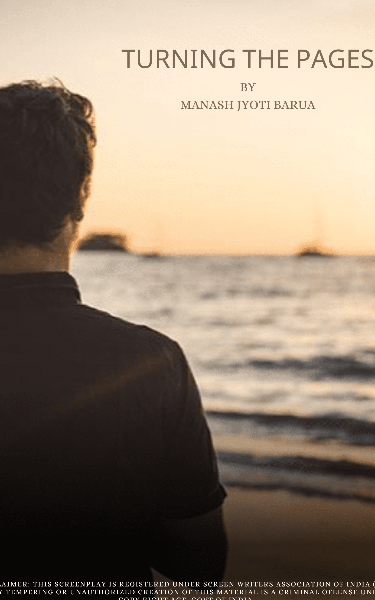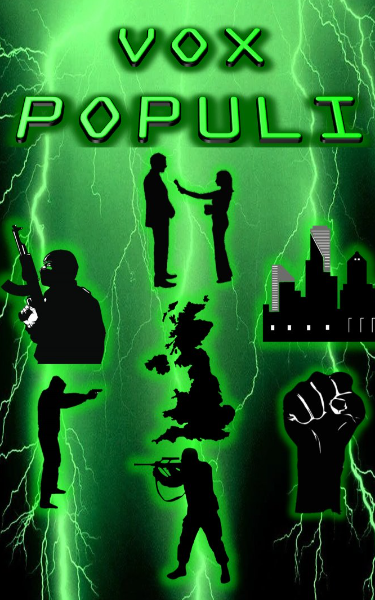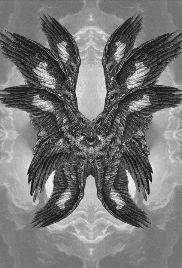A well written piece with explicit images of horror by a writer who has an apt grasp of the written word. There is a real sense of the intended emotional journey albeit as an impression as opposed to getting it off the page. I think it's more down to the actual approach to creating these scenes, on the page, contrary to the writers creative ability; which I think is exemplary. Suffice to say the tell itself loses its way as the horror elements are introduced into the story. The first act is a good attempt at tackling the theme of emotional neglect:
The first impression of Dom is that of a ten year old boy who, seemingly, has a high IQ, which is believable. The upturned sketchpad displaying the 'God is good' message could be a symbol of Dom' demeanour at this point in his life; an upturn of personality subsequent of a tragedy, which is soon revealed as his mother death. To a response of anger, rebellion and violence. It's a nice sub-theme about how drastic and sudden change is not necessarily as good thing in children. Children need to be nurtured, by their parents. All he has now is his father, Paul. A drinker, setup as neglectful, a man struggling to adjust, to the loss, himself and can't cope with the changes in his son. Their relationship going forward does not bode well without the intervention of exceptional circumstances. I'm not sure of the significance of the spirit/imagination of Dom's mother, Penny, has on reconciling this change unless another sub-theme is introduced about letting go.
The kitchen scene introducing Paul and Kassie feels too long and took me out of the moment. I get the point of the scene, just need to get there quicker; nothing a little imagination can't fix. Paul helping Dom read seems a little contradictory considering the smarts Dom has been set up with; how does he read and absorb the knowledge of all those books on theology if he can't read and understand the words? The scene would serve the story better if Paul displayed more signs of emotional neglect. Maybe he's really not interested in listening to all that bible stuff, masking the fact that he's actually not interested in listening to his son read. The passage Dom reads here is interesting as it relates to change and truth which ties in well. At the end of that scene, Paul shows some air of care, which seems out of character at this point; it's still the first act and it's better if we get the feeling that fatherhood, not necessarily Dom, is a burden on him. The atonement and ransom theory I find a little weird uttered by the kid, okay he's a little genius but he's still only ten years old, meaning his social skills and EQ are not likely to be as well developed.
Why does Dom's mother egg him on to help the Homeless Man? Then later on, she says 'Don't'? Confused by that. If she is indeed a spirit, surely she must sense the evil lurking there. If she is a figment of his imagination, is there some schizophrenia issues going on that I haven't picked up on? The Homeless Man character as a whole felt arbitrary to the story, integrated for two reasons. So Paul bring his gun on the camping trip, which didn't payoff. And to reinforce how Dom is feeling about his mothers death which would eventually act as the herald for said camping trip, but it didn't feel strong enough for me. A better approach may have better emotional impact.
So at the church, Dom attends Sunday service, and I get the impression Paul is working on the building being constructed next door. Why is Paul working on a Sunday? Is he on a deadline he is struggling to meet? If so, set it up, in fact I'd recommend it, to help the dynamics when crossing the first threshold. In this church scene, I sensed something off about Dom's poise. I associate ten year olds as being inquisitive, imitative and full of tantrum through play. Here Dom is in debate, teaching and forming opinion, showing the social EQ of an adult. Came across as odd, I have to keep reminding myself that Dom is just ten years old. I don't know, maybe I only see it this way from my own experience. Socking the Elder's nose is fitting of a troubled kid who gone through such tragedy, but it would be a lot more convincing if it was in Sunday school, in a fight with another child. Would spark that first lecture on parenthood between Paul and the Sunday school teacher. Non plus, Paul is just proud that he's taught his son how to punch, not much of a role model. Back onto the Homeless Man, I don't understand the act of violence to Dom's kindness other than the aforementioned tool to goad the camping trip. An after thought begs the question, why would a traumatised kid, like Dom, care about the homeless man anyway? I'm assuming his mother has died recently, so kindness would be the last thing on a ten year olds mind, right? I think anyone who is in the anger stage of grief would be bitter and resentful, guilty and blameful, loss of faith etc.. Dom's no different, he's still a human being. Asking why? Why does that Homeless man gets to live, and his mother gets to die? Anyway, that's how I see it and I'm only speculating on Dom's stage of grief. I could be wrong.
The story has been set up well, I understand there is an emotional foothold here, no pun intended, but I do feel that the scenes need a fresh approach to tackle the subject matter, in a visual sense, with a view of pacing to give room for an opening scene, maybe, that will set the tone of the story in the horror genre.
There is elements of the heroes journey called 'The Call to Adventure' and 'Refusal of the Call'. Some may argue that it's not necessary, but from my point of view, I see it as a reason to display the natural human instinct to resist change/fear the unknown. Just up and going camping just to get away from it all, and conveniently at the church no less, comes across as a bit wayward. A call is needed to get them both out there somehow. This is the reason why I suggested work deadline set up. If Paul receives a phone call demanding work to be finished by the morning otherwise he doesn't get paid, he would have no choice but to go to work, at night. It poses a dilemma, a major story telling tool. Paul would resist but has to comply. Of course, after that lecture he received from the Sunday school teacher about parenting, he can't leave his son at home alone. Being shanghaied into an adventure works just as well, so long as that fear of the unknown is established. The first threshold would then be the doors of the church which Dom would pass through. But not before receiving a call of his own, a supernatural call, luring him into the church whilst his dad is over-engrossed in his work.
After that the story gets way too confusing. I couldn't piece together what was going on in relation to what was set up; which is why I can't give a detailed analysis like with act one. In fact, the story became more about the Nothing, and its purpose, than it did about Paul and Dom's relationship. There's a lot of really well written scenes, very explicit and fitting for a horror story, that were not enhancing the emotional story moving forward. Paul's fatherly instinct doesn't take centre stage in his life; no visual way of representing how he is now sacrificing everything for his son moment. Kassie merely serves as a device to the story and is void of any character development that would magnify the themes in place. And Dom doesn't go through the bargaining, depression and acceptance stages of grief which would return his demeanour back to love. I believe this is because the Nothing's purpose does not test the strength of the protagonists current personalities in order for them to see the light. All they got was a time-line of horrifying events of which they were separated for longs periods. Subsequently, the theme of emotional neglect faded into the background along with the sub-themes of change and truth. Of course, the writer knows this story and I may be way off with my interpretation.



















